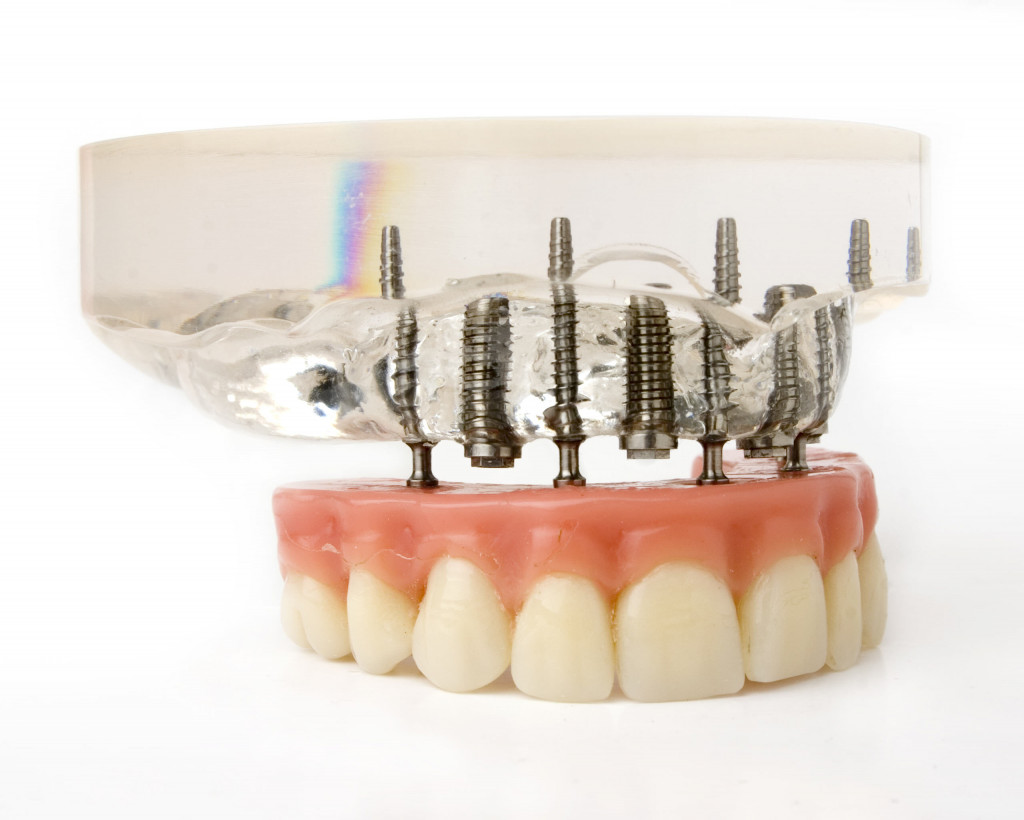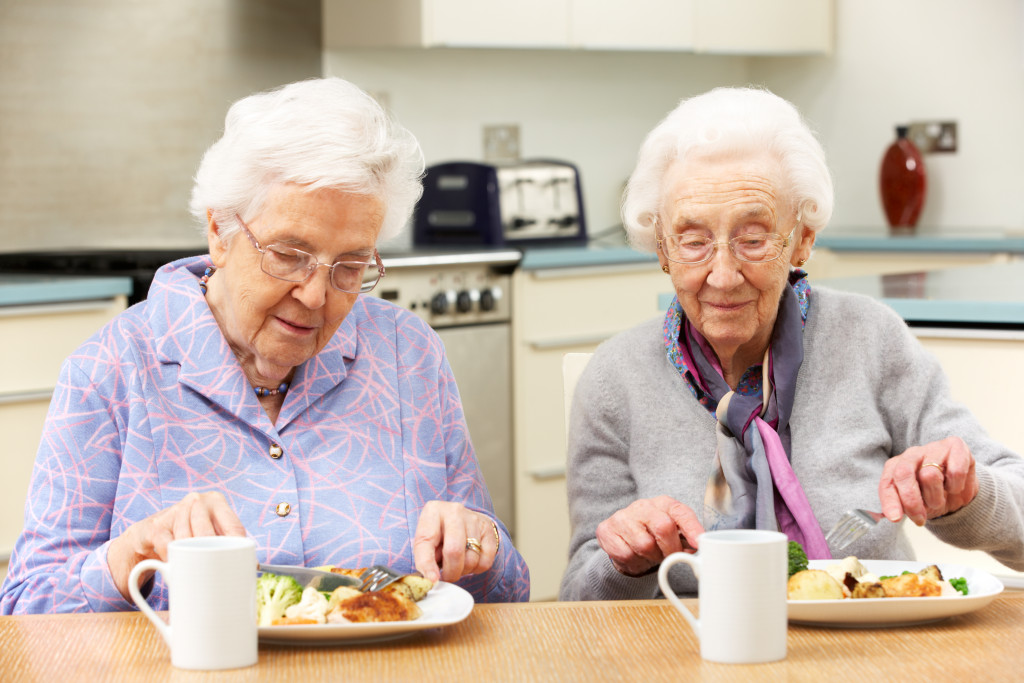If you have elderly parents or relatives, you may have noticed that their eating habits have changed. They may not be able to chew as well, or they may have trouble swallowing. As a result, they may not be getting the nutrition they need. Here are some tips on how to help the elderly eat correctly.
Cut their food into small pieces.
Eating is an essential part of life for everyone, but as people age, it can become increasingly difficult to chew and swallow food. This inability to consume solid foods can put elderly individuals at risk for choking and even long-term nutritional deficiency.
To mitigate that risk, cutting food into smaller pieces is vital – making meals easier to manage and digest. Not only that, but providing a variety of texture choices also cares for the taste buds by giving interesting flavor options. With creative meal preparation and some trial and error, an older person’s diet can remain enjoyable while being easier to consume.
Let them get teeth replacements.

In addition to cutting food into smaller pieces, elderly individuals may benefit from dentures or other dental replacements. Those with denture plates need to ensure that they fit correctly. They can do this through regular visits to a dentist so adjustments can be made as required.
If an older person does not have proper dentures, it may be wise to invest in one, as even partial plates can help them chew more effectively. They may also get teeth replacements to fill in any gaps due to tooth loss, which can improve the aesthetic of their smile and help them eat more normally.
Serve them finger foods or easy-to-eat foods.
Eating can become more challenging for the elderly, as arthritis and other conditions can make using kitchen utensils difficult. Fortunately, a variety of finger foods can provide them with much-needed nutrition without requiring the dexterity to manipulate utensils.
Such ease-of-use foods include wraps, tacos, roll-ups, sandwiches, steamed vegetables with dips and sauces for dipping, and other fun finger food ideas like pizza pinwheels or deviled eggs. Additionally, if chewed carefully, larger-sized pieces of meat such as chicken breast tenders or strips may also be an easy-to-eat option for the elderly. Ultimately, creating meals with finger foods allows for healthy and safe eating for those who may find it challenging to use kitchen utensils.
Make sure they are getting enough fluids.
Although it may not seem like a significant issue, hydration is important for elderly individuals. As many people age, their sense of thirst decreases, and they often don’t feel the need to drink even when they start dehydrating – this can lead to fatigue, confusion, and difficulty concentrating. Additionally, certain medications can increase fluid loss, increasing the risk of dehydration.
It’s essential that if you’re caring for an elderly individual, regardless of whether they live in a nursing facility or with family, you regularly monitor how much liquids they are consuming and encourage them to drink periodically throughout the day. Water and juice are both good options but offering hot drinks such as herbal teas and warm water with citrus can also provide additional hydration.
Be aware of any medications they are taking.
As people age, their body changes. Depending on a person’s lifestyle choices and medical conditions, medications can become a necessary part of daily life for the elderly. With that said, when caring for an aging person, it is essential to pay close attention to their medications, as some may increase or decrease their appetite or even affect how their body processes food.
Examples of these would be diuretics and insulin which could raise blood sugars and in turn affect the desire to eat. It’s essential to monitor eating habits in elderly patients and be sure to discuss any changes with their physician if necessary.
Try to make mealtimes a social occasion
As we age, our bodies undergo a wide range of changes, particularly in eating habits. Significant weight gain or loss can occur due to certain medical conditions, medication, and changes in metabolism. Mealtime should be encouraged to ensure the elderly are receiving proper nutrition. Although physically making meals for them is important, social interaction around mealtimes can create an enjoyable atmosphere and improve their quality of life.
As a result, making mealtimes a special experience not only encourages healthy eating but also improves well-being. It’s worth carving out a few minutes each day to visit an elderly loved one or friend and join them for meals if possible; even just sitting with them for some friendly conversation during mealtimes can make an impact.
Proper nutrition is vital for older adults in order to maintain their health and quality of life. By following the tips above, you can ensure that your elderly loved ones get the necessary nourishment.
